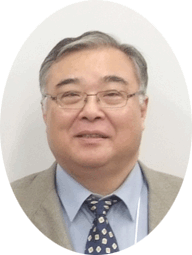Greetings from the President of the Japanese Palaeolithic Research Association

Prof. Dr. Hiroyuki Sato
July 18, 2014
I was elected as the president of the Japanese Palaeolithic Research Association (JPRA) in response to the Prof. Akira Ono, former president, at the general meeting held on June 21, 2014. I am a professor, working at the Department of Archaeology, Graduate School of Humanities and Sociology, the University of Tokyo. JPRA was established in December 2003 with the goal based on the refection came to light in 2000 of the "Fujimurafs Scandal" , not only in Japan, to provide a forum for academic discussion that is open internationally. So that, JPRA is a relatively young society and it celebrated its 10th anniversary last year. Now it is slowly matured as a society finally. Although, considering that the JPRA president is elected every two years, I will mainly work on the following areas.
Closer cooperation with the regional research groups throughout Japan: I would like to develop further the study of Palaeolithic research through these collaborations. At the same time, activity of the Asian Palaeolithic Association (APA), which formed from four countries composed of Japan, Chine, Korea and Russia, would be more active, and we want to encourage to be realized the membership in other Asian countries or regions beyond these four countries. In this autumn, APA Meeting will be held in Korea and it is to be held in Japan in 2016. I will continue to promote with all of us to prepare for that.
The Palaeolithic research in the world now compose of, not only archaeology, but also geology, zoology, vegetation study, paleoanthropology, chronometry, and environmental sciences. Since these have become an essential, I think that more closely cooperation with related sciences is needed, so that we are working to interdisciplinary and internationalization of research meeting or the Journal of "Palaeolithic Research" . Especially, from the establishment of the Society, we made effort to work the database of the Palaeolithic sites all over the Japanese Archipelago, and had published in 2010 " Palaeolithic Sites in the Japanese Islands: A Database" , which covered more than 16,000 sites. This book has been highly appreciated at Japan and abroad, and we are providing the basic data for the future Palaeolithic studies. We would like to be realized the transmission of the WEB and translated into English and update this database later this year.
Performing the training of the young researchers, who will lead the next generation, such as enhancement of the Society Award and research group system, and while providing opportunities for democratic debate, JPRA would like to aim the Academic Society in the sense of the term at the same time.
HOME